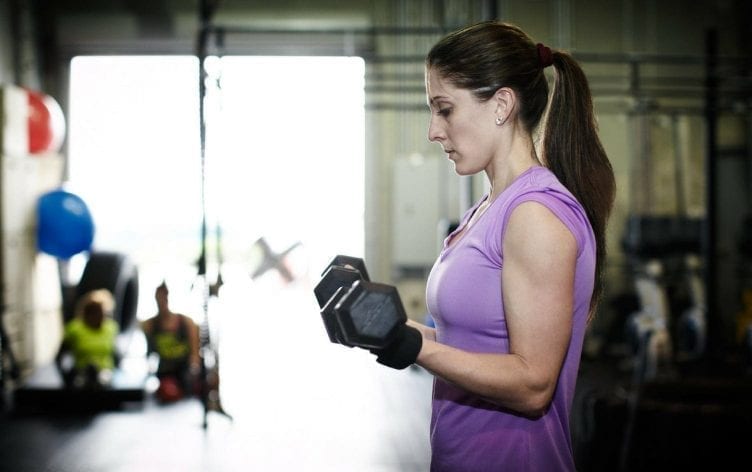
“Muscle weighs more than fat” is a common phrase you’ll often hear at the gym or from well-meaning friends. The conventional wisdom being that, if your clothes fit better but you haven’t lost any weight, it’s because you’ve been shedding fat and gaining muscle. That said, it’s a misleading statement since, no matter what something’s made of (muscle or fat, bricks or feathers), a pound is a pound.
So muscle does not actually weigh more than fat. But it is denser, and that’s usually where the confusion stems.
WEIGHT VS DENSITY
According to Lance C. Dalleck from the American Council on Exercise (ACE): “The problem lies with equating the measurements ‘weight’ and ‘density.’ While weight (mass) is a component of density (mass/volume), they should not be used interchangeably. As we lose fat and gain muscle, weight may change very little, while body volume decreases as we become leaner.”
In other words, muscle takes up less space in your body than fat, so it’s possible to pack on muscle — and maintain or even gain a little weight — while you’re actually getting smaller.
For a handy visual aid, imagine one pound of fat being roughly equal to the size of a small grapefruit, while one pound of muscle is about the size of a tangerine. Even though a pound is a pound, the more grapefruits you’re packing, the larger you’ll be.
METABOLIC RATE
Beyond your body composition, muscle and fat also play two very different roles metabolically. Your basal metabolic rate is the amount of calories your body burns just to survive — yes, even while you’re watching TV or sleeping. This includes things like breathing, converting food to energy and circulating blood. Per ACE, it accounts for roughly 60–75% of all the calories you burn in a given day. And because muscle tissue burns more calories than fat tissue, as you increase the amount of muscle you have, you’ll increase your basal metabolic rate.
Cedric X. Bryant, the chief science officer at ACE, says a pound of muscle burns an additional 4–6 calories each day compared to a pound of fat. So if you start a strength-training regimen and replace 5 pounds of fat with 5 pounds of muscle, you can burn up to 30 extra calories each day. That might not sound like much, but it’s the equivalent of losing 3 pounds per year, just from being alive. If you’ve got a lot of fat to lose, and are able to combine your weight loss with significant muscle gains, your basal metabolic increases even more.







